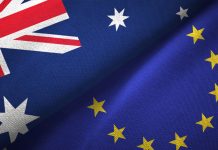Forbes McKenzie, CEO of McKenzie Intelligence Services, explores investments in Britain’s satellite intelligence, strategically focusing on our core strengths
The news of Neo Space Group’s recent acquisition of the digital Earth Observation (EO) platform, UP42, is the latest example of the high-profile EO deals dominating the market at year-end. And, if this latest move from Saudi Arabia highlights anything beyond EO’s rapid growth of EO – it’s the potential for profitability presented by this transformative satellite technology.
Indeed, with real-time insights into everything from weather patterns and climate risks to military movements, agriculture and urban planning, EO satellites are vital tools to address a myriad of global challenges more effectively. It’s all about using real-time data to make informed decisions that drive better sustainable management and national security.
The question is not whether EO satellites are necessary or lucrative, but how the UK can refine its approach to EO to secure and maintain a competitive advantage.
The UK’s niche in an established market
Whilst the economic potential of EO satellites is undeniable, monetising the full value chain – comprising everything from satellite manufacturing to the control of large-scale constellations and data commercialisation – remains vastly underexplored. The UK excels at leveraging EO data and developing EO data platforms, placing it at an advantage at both ends of the value chain spectrum. Nevertheless, it does little in terms of the middle-ground – operating large EO satellite constellations – something more often seen from global superpowers like China and the U.S.
Indeed, British companies stand at the forefront of EO platform development, boasting the capabilities required to transform raw EO data into actionable insights that can then be passed on. These platforms, accessible to both governments and private organisations, generate significant value without requiring direct satellite ownership. Likewise, advanced analytics firms lead the way in interpreting EO data, enabling precise applications across military, environmental and economic sectors. This capacity to deliver intelligence on high-value insights is, in fact, a cornerstone of Britain’s existing industry success.
Of course, the UK’s investments in spaceports, such as those located in Cornwall and Scotland, likewise support the launch of small-scale satellites. The question is whether Britain should continue to develop its own EO value chain within the niche it has already established or if it should leverage the abundance of offshore potential available to launch into the resource-heavy management of mega-constellations like the U.S., as well.
Strategic focus
The most successful EO monetisation strategies tend to focus on specific value chain areas. Attempting to compete in large-scale satellite constellation management – like Planet Labs or SpaceX – would simply stretch the UK’s resources, meanwhile undermining its progress in analytics and data platforms.
By doubling down on its strengths rather than venturing into its weaknesses, Britain can position itself as a leader in the rapidly expanding EO market, without the costs involved with large-scale development, launch and management of satellite constellations. It’s a strategic focus on high-quality EO analytics and decision-making tools that will allow the UK to perform at its best.
Internet 4.0
With the next phase of global connectivity, driven by the Internet of Things (IoT), now a reality, the Internet 4.0 and its interconnected network of sensors, devices and satellites, in fact, opens up whole new realms of data. This will soon translate into unprecedented demand for the UK’s existing style of EO analytics, with real-time, actionable insights becoming increasingly critical to all industries across the globe. Our strong academic tradition, combined with our capabilities in terms of analytical and technical skills, positions our nation perfectly to capitalise on this shift.
Therefore, the UK Government must continue investing in space education and scalable, innovative EO solutions, focusing on more appropriate finance and rebates to secure a strategic and economic advantage.
Scaling what works
Of course, such focus first requires the removal of systemic barriers, with the government called upon to do more to support emerging EO companies in the UK if we are to reach our full potential in the field. Ideally, this would start with better-targeted rebates and financial mechanisms to counterbalance the limitations of recent tax reforms, taking into account the fact that – despite the risk of current schemes being manipulated by non-innovative start-ups in areas like finance looking to scale quickly then sell for their own rather than national interests – genuine innovators are still being left without the necessary support. Smaller EO start-ups, in particular, are suffering, given that they lack the resources required to navigate complex industry requirements. This leaves the UK losing out both competitively and economically as a whole.
Investment in education is equally critical to bridging the existing skills gap seen in UK satellite engineering and technology, followed by an update in policy. Indeed, a recent report from the UK Parliament highlighted that a disjointed approach to policy risks stalling progress in the high-potential EO sector, with governments worldwide already acknowledging the technology’s economic and security importance. Therefore, the UK must do more to match this pace, creating consistent support for start-ups and fostering a more robust talent pipeline.
The EO satellite market: Looking ahead
The EO satellite market represents a significant opportunity for Britain, provided we remain focussed. By capitalising on our strengths in analytics and data platforms, the UK can continue to deliver transformative solutions without overextending its resources, with the surge in acquisitions like that of UP42 highlighting the value of EO data.
Britain’s role in this industry is not about doing everything but about excelling in what we do best. With the right policies and investments, guided by expert knowledge, the UK can secure its place as a global leader in the lucrative, strategically critical EO sector.











